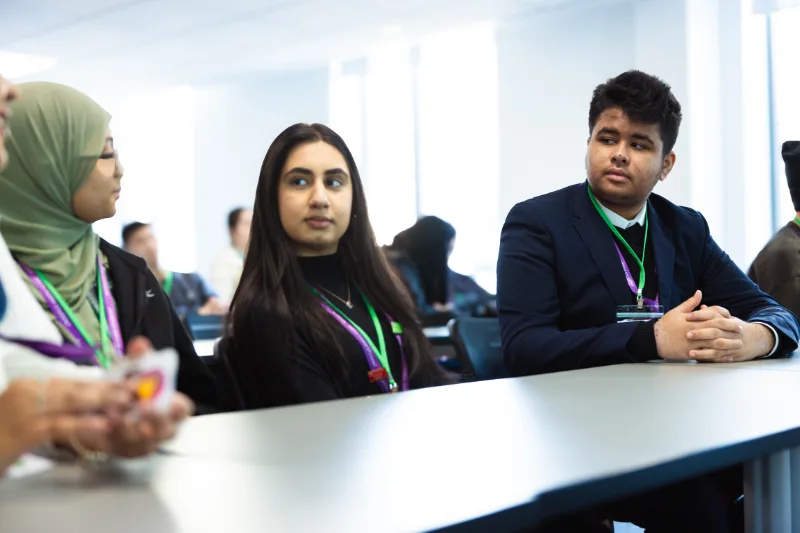Student wellbeing and mental health: How mentoring helps young people find calm amongst the noise


I scheduled a one-to-one session with a bright Year 12 student I’d mentored for a few months. They were usually enthusiastic, always brimming with ideas for personal statements and with curious questions about university life. But today, she barely made eye contact.
“How are you?” I asked gently.
They shrugged. “Fine, I guess.”
It’s a phrase I have come to hear often, and one I’ve learned not to take at face value.
So I tried again.
“Are you sure? How are you, really?”
And just like that, the silence broke. The Year 12 student spoke, not about UCAS or course choices, but about how everything lately felt too much. The news: war, climate change, and another stabbing reported on the news this morning. The revision plans she had made but hadn’t followed. The nagging voice in their head was telling them that they were already behind everyone else.
“I just feel like I’m supposed to care about everything, all at once,” she said. “And I’m tired.”
That moment reminded me why we do this work.
Mental health support for school pupils
Students urgently need targeted mental health support from skilled professionals who can truly make a difference. Last week, the government announced that nearly one million more young people will have access to mental health services in schools this year. By the 2029/30 school year, the goal is for every student to have access to this support.
Working together with other professionals can help build a nurturing environment for students to flourish. As a University Access Officer (UAO) at The Access Project, I’m trained to support students academically, but the job is so much more. Today, we’re all navigating overwhelming information, such as news, opinions, and events that constantly shape our thinking. For young people, this can be especially challenging. There is an added layer of academic pressure and uncertainty as they consider their future degrees, careers and goals. Amidst exam season, one can easily imagine the stressors that come with this time of year.
In moments like these, what they need isn’t another to-do list. They need someone who will sit with them and listen. We act not just as access officers but also as trusting adults who provide consistent support in young people’s lives.
Mentoring at The Access Project
After our conversation, we didn’t discuss university applications right away. We spent time building a mini plan. This included sharing resources from mental health charities and creative ways to allow mental health breaks. We talked about hobbies, favourite TV shows, and bands that make us groove. Then, we discussed building time blocks for revision, and how they can use SMART (specific, measurable, achievable, relevant and time bound) goals to ensure that they track their progress and see their wins in real time. This also helps the student prioritise their tasks, understand deadlines and how to approach them without burning the midnight oil on the nights before.
This is the joyful part of mentoring students. We get to build sustainable study habits with the students, together. Whether it’s for GCSEs or A levels, most young people are on a two-year marathon of learning. By slowly building a culture of fun learning, the students also gain insights into what excites them and what they might wish to pursue in the future.
Once my student created their plan, I noticed a fundamental shift in their mindset. We discussed balancing academics, exploring enrichment opportunities, and continuing their tuition with The Access Project.
That hour-long conversation was a stepping stone to further goals and ambitions. As mentors, we’re a stable presence in students’ journeys. We offer perspective when things feel chaotic and help students find their footing in a shifting world, as a mentor should.
This is not just the story of one student. Many students face similar situations where they feel overwhelmed by the world news, government policies that directly impact them, and future uncertainties, all while juggling academics, extracurriculars, and various pressures of home life.
We can help students find clarity and confidence in a noisy and demanding world by creating structure, offering resources, and simply being available to listen. They use their agency to find their voice. Our regular check-ins become more than just academic mentoring. They become moments where students feel seen, heard, and better equipped to move forward.
The Access Project helps young people from under-resourced backgrounds achieve their academic potential and place at top universities. By donating to our programme or volunteering with us, you’re helping the country’s most under-resourced young people find their way to a brighter future.
